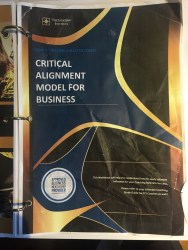Could poverty be a sign of our need to heal our relationships with self, with family, with our communities, with all mankind, with all living things, with the earth and with God?

My father, Frank Pullar Junior, served two terms as president of the former Rodney Shire Council.
He was not into financial management – that was for bean counters, and he was not interested in infrastructure – that is what engineers are employed for. Frank cared about people. He saw local council as the first tier of government, the level that was closest to the people. Welfare and human services was Frank’s unofficial portfolio and was supported by his council colleagues and staff. Frank led the shire to become the acknowledged leading service municipality in the state of Victoria at the time.
His father, Frank Pullar Senior, was a businessman who managed a number of orchards.
He, my grandfather, produced fruit for both the local and the international market.
He told me to read “An Inquiry into the Nature and Causes of the Wealth of Nations“, generally referred to by its shortened title “The Wealth of Nations”, written by Scottish economist and moral philosopher Adam Smith.
I read it at the time and I read it again recently. It teaches some principles of international trade.
We now have the internet. The internet didn’t exist when I first read “The Wealth of Nations”.
We now have an amazing opportunity to do some international trade ourselves without the long delays of international shipping and the huge costs associated with producing, exporting and selling internationally.
We can sell information.
How can we sell information?
Take a look on the internet. You will see a huge amount of free information.
You will also see information products for sale.
Ebooks, trainings, audios, videos, subscription newsletters and more.
People pay for information that they believe is valuable to them.
And it can be easy to find out how valuable your information is to the people who can afford to pay for it.
For example you can test information by posting it on Facebook and seeing what response you get. Any likes or comments.
You can reply to any comments. You can message any person who likes your post and discuss about the usefulness of your information.
When you discover what information people value, you can create more and consider ways of packaging and marketing it to people who may be willing to buy.
If the is a serious lack of financial resources where you live, some of the people considering purchasing your information product may be more willing to pay for your product knowing that the money that they pay for your product is helping your community.
While only a few people will want to sell information products, there may be people in your community who do, and who can bring wealth into your community with international trade.
That way your international trade can help heal the relationships between the materially wealthy people and those with less financial resources.









